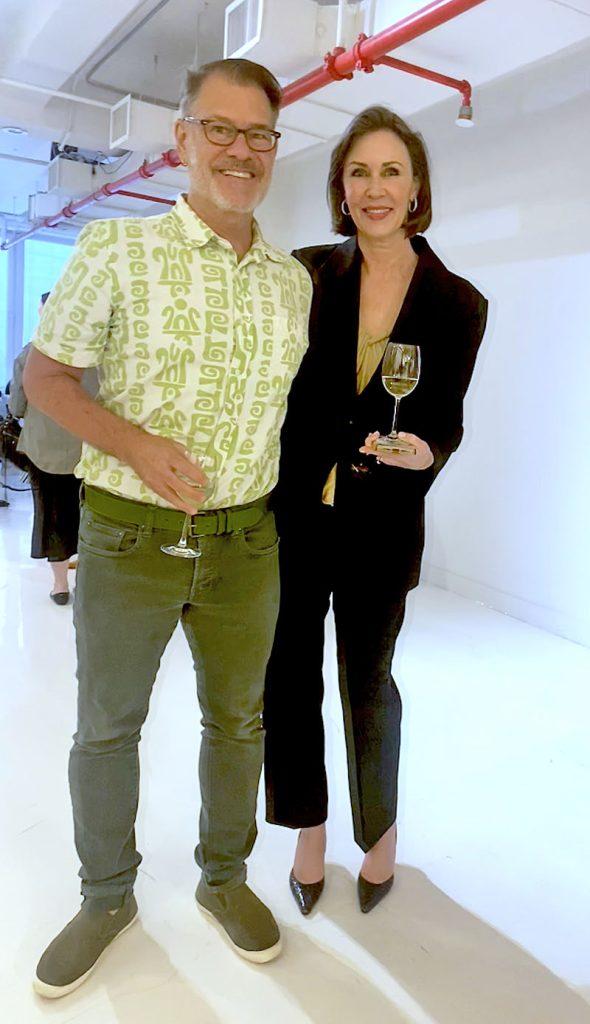
John Bartlett and Kate Sheldon – All photos by Stacy Lomman
In today’s economy, it is remarkable that one can buy an outfit for the same price as a latte. Fast fashion companies like H&M, Topshop, Forever 21, Fashion Nova, and Shein have been churning out cheap garments for years, and newcomer Temu has exploded since its 2022 debut by offering items for little more than pocket change.
Manufacturing on a mass scale is not only environmentally irresponsible, wasteful, and, in most cases, unethical, but it also results in an inferior product. Garments wear out quickly, and because they can be replaced so inexpensively, customers are motivated to throw out the old and buy new so regularly that these items are considered “disposable clothing.”
Overproduction has contributed to global waste on a colossal level. According to Earth.org, approximately 92 million tons of apparel end up in landfills every year. The average US consumer throws away over 80 lbs of clothing annually. The fashion industry is responsible for 20% of global wastewater and 10% of carbon emissions. Additionally, nearly 10% of the microplastics dispersed in the ocean each year come from textiles.

Caroline Priebe (Driftless Goods)
Shifting the Paradigm with “Slow Fashion”
In recent years, “slow fashion,” which prioritizes quality over quantity, values fair labor practices, and carefully considers how to reduce the impact on the environment, has gained momentum. Consumers are increasingly aware of the adverse effects that manufacturing has on the ecosystem and are looking for sustainable options.
As a result, vintage apparel, upcycling, and resale have become more mainstream, and designers passionate about sustainability are acting to align themselves with responsible, eco-friendly sources, suppliers, and manufacturers.
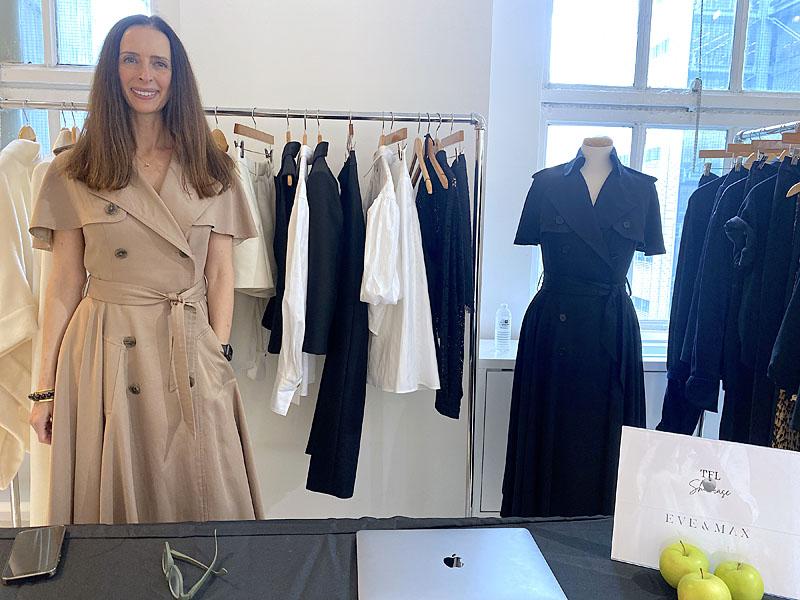
Maxine Trowbridge (Eve & Max)
Luxury fashion veteran and pioneer Kate Sheldon shares this passion. This former Neiman Marcus buyer started her consultancy company in 2007 and is the founder and CEO of The Fashioneering Lab (TFL), which launched in 2021. The TFL Community is a global network of industry executives and brand owners collaborating to drive essential industry transformation and future-proof the fashion sector while actively learning from one another.
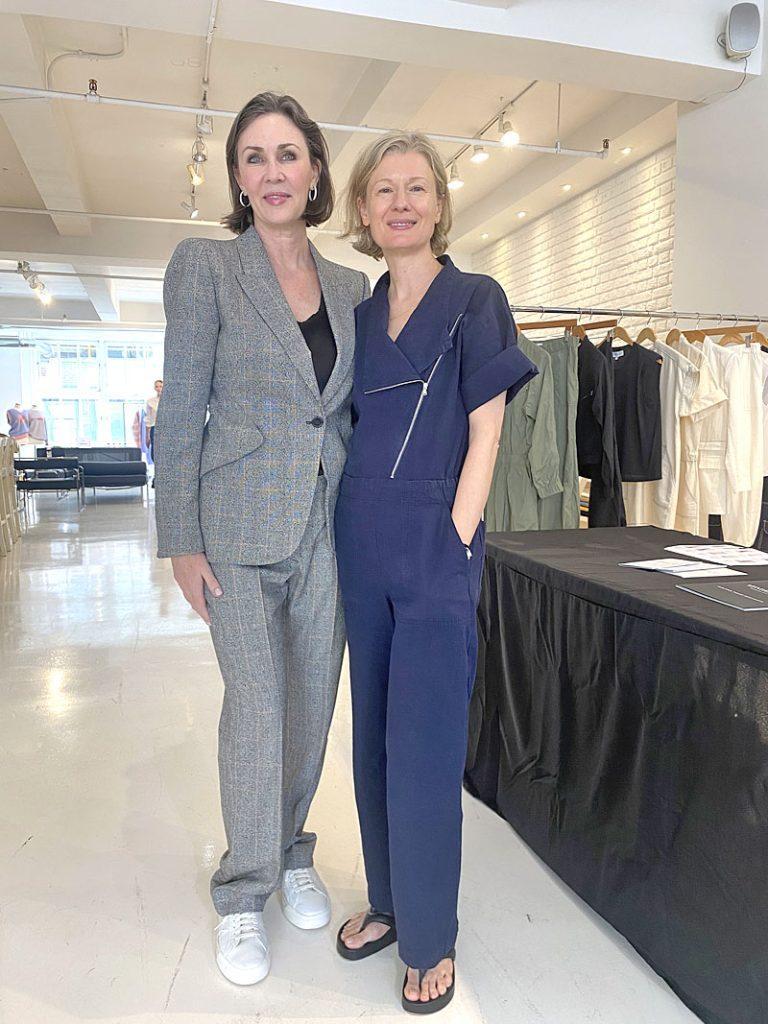
Kate Sheldon & Tamara Davydova (Minimalist)
Sheldon described the business as 360 degrees of consultancy focusing on luxury brands that lean heavily into sustainability, innovation, and inclusivity — things important to her heart. “We’re a disrupter,” Sheldon said. “We’re coming up against old systems where people are producing six collections a year, which is inherently the least sustainable thing we should be doing.”
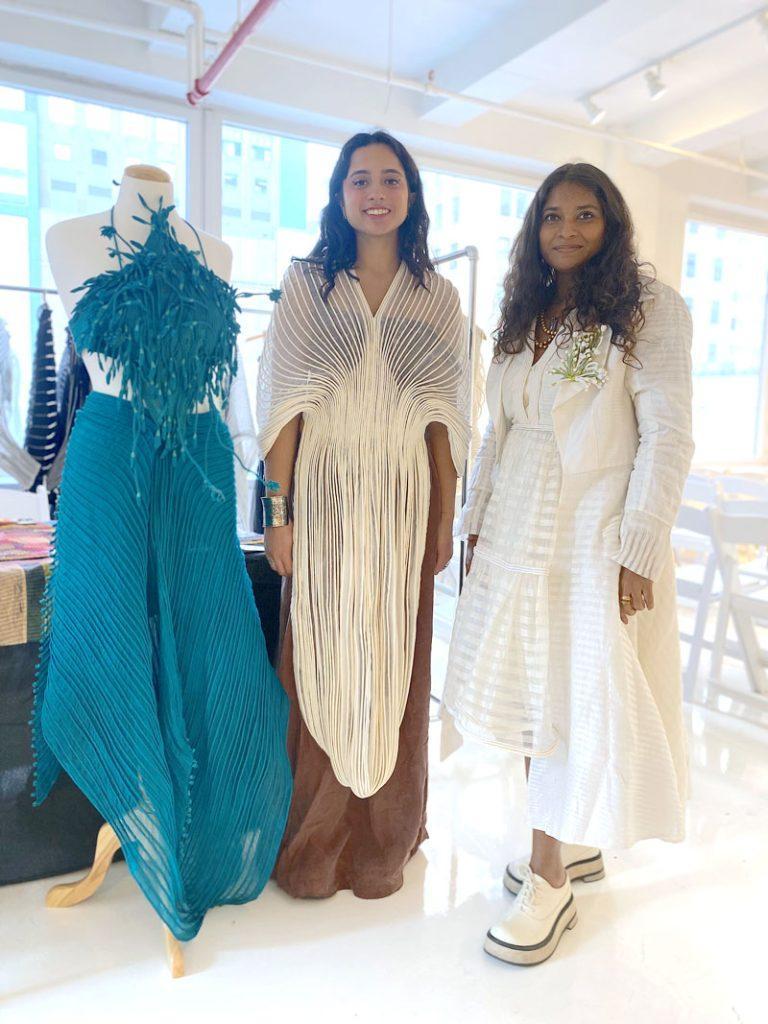
Vaishali Shadangule (Vaishali S)
Spotlighting The New Innovators
On Tuesday, TFL debuted its inaugural showcase at Studio 250 (250 West 40th Street), presented by KnitUp, Cobalt, Recurate, Natural Fiber Welding, Alternew, Style With Substance, and The Phluid Project. The showcase features designer and contemporary luxury brands that prioritize sustainability, technological innovation, ethical labor practices, and those shifting from linear to circular models, which aim to create a closed-loop system, reducing waste and maximizing the lifespan of clothing and textiles.

Elizabeth Goodwin Wellborn (Stick & Ball)
Eight designers from all over the world are exhibiting their collections through June 15th. The group is diverse, and while each designer has a unique story and point of view, they share the same core environmental values and foster fair labor practices.
The featured designers include Vaishali Shadangule (Vaishali S), Maxine Trowbridge (Eve & Max), Tamara Davydova (Minimalist), Paige Andreas (Arianna Andreas), Elizabeth Goodwin Wellborn (Stick & Ball), Rob Smith (The Phluid Project), Caroline Priebe (Driftless Goods), and Daryl Kerrigan (Daryl K).
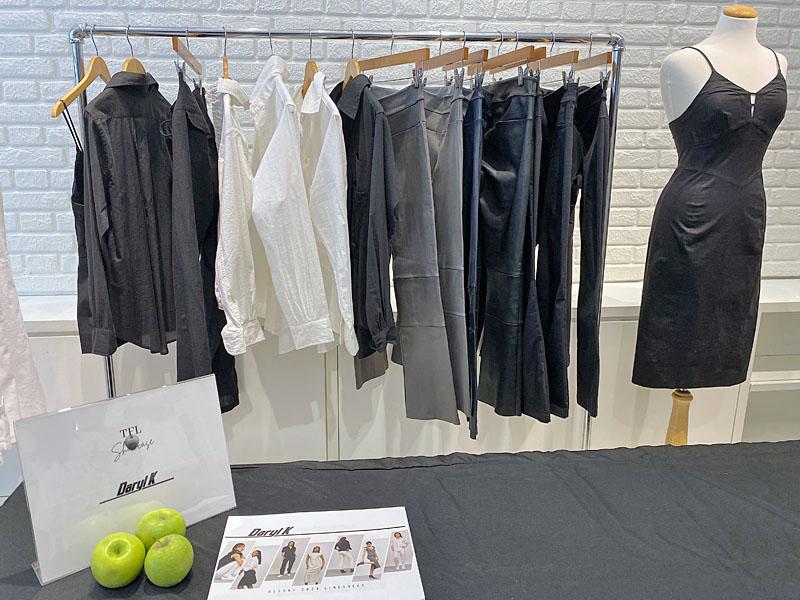
Daryl K merchandise
Coinciding with the showcase launch on Tuesday evening, industry leaders gathered for a private cocktail reception and discussed new regulations reshaping the fashion industry. Attendees included former Creative Director, Global Forecaster, and Visual Storyteller for Saks Fifth Avenue, Ferragamo and Macy’s, Nicole Fischelis, and award-winning designer, animal rights activist, founder of The Tiny Tim Rescue Fund, and Director of Fashion for Executive and Professional Studies at Parsons/The New school, John Bartlett.
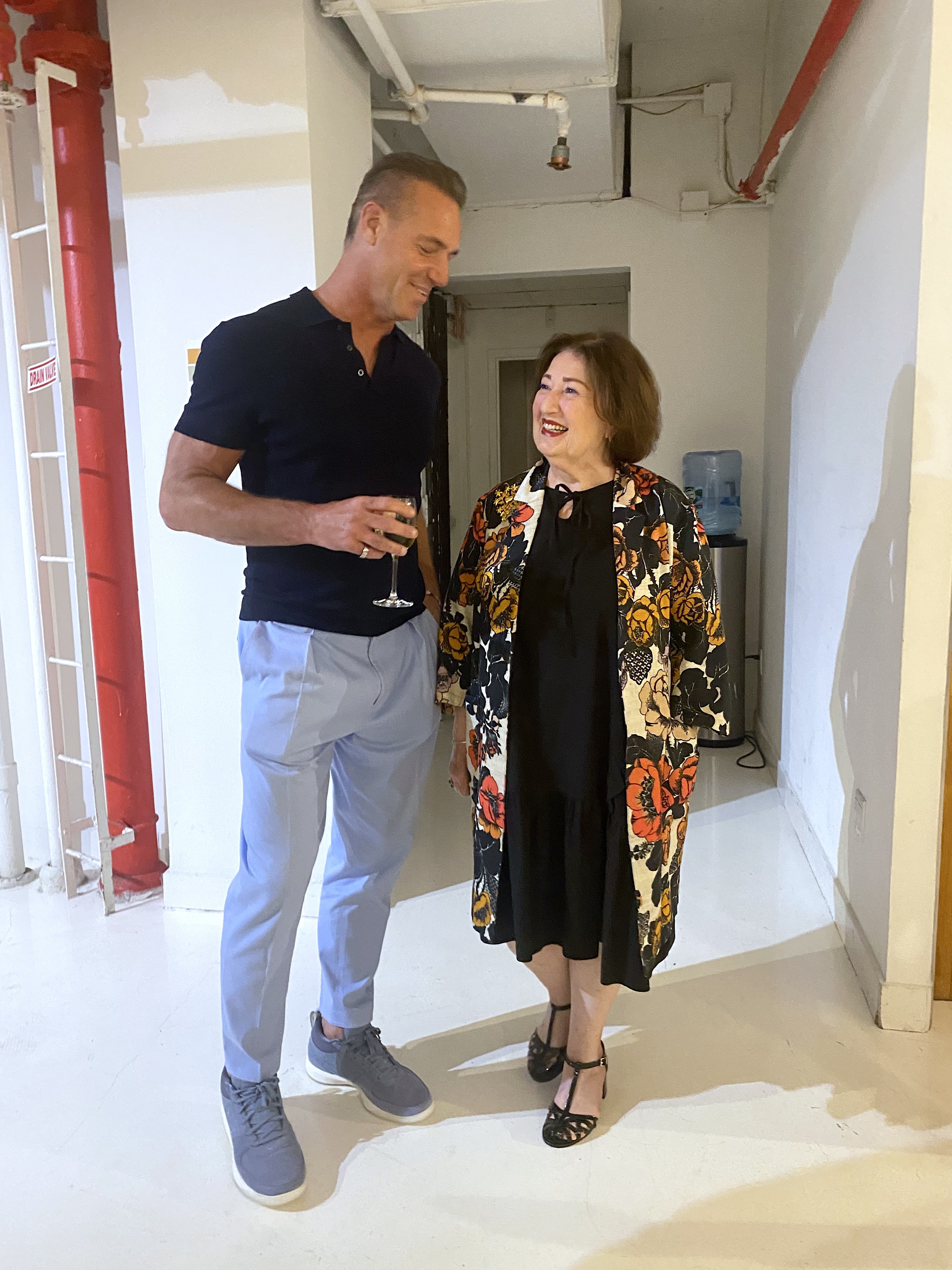
Rob Smith (The Phluid Project) and Nicole Fischelis
Redefining Luxury
TFL’s Executive in Residence and Advocate for Legal Excellence in Luxury Fashion and Sustainability, Elizabeth Henries, joined the conversation via Zoom from London, where she had just received an award for the Luxury Law Firm of the Year – Independent Law Firm.
Henries is the Founder and CEO of Henries PLLC, a boutique firm that provides integrated legal services to some of the world’s best-known luxury companies. Teri Agins, an award-winning journalist, author, lecturer, consultant, and former senior writer and columnist at The Wall Street Journal, served as the moderator.
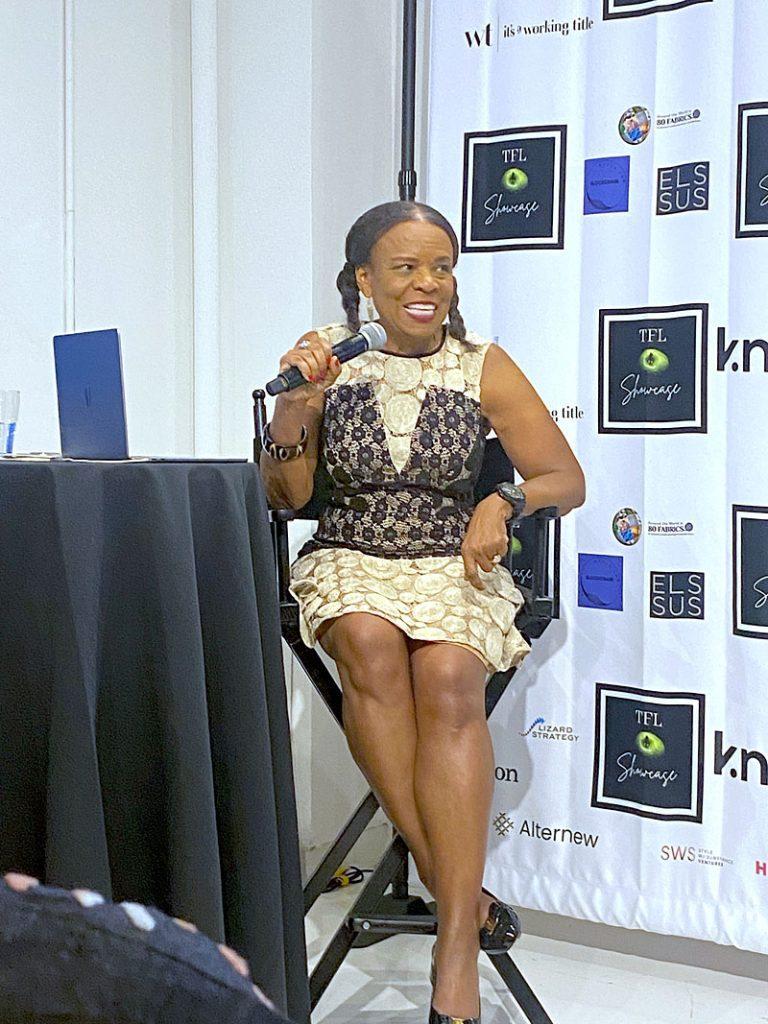
Teri Agins
“The fashion industry is redefining luxury beyond the high price tag,” said Agins. “New luxury is quiet, modern, and responsible.” Henries agreed that consumers are looking for unique, artisan pieces, and they’re excited to explore new, custom brands like KnitUp, which utilizes digital technology that enables individuals to design their own pieces by selecting silhouettes, yarn qualities, color, and stitch patterns from KnitUp’s library.
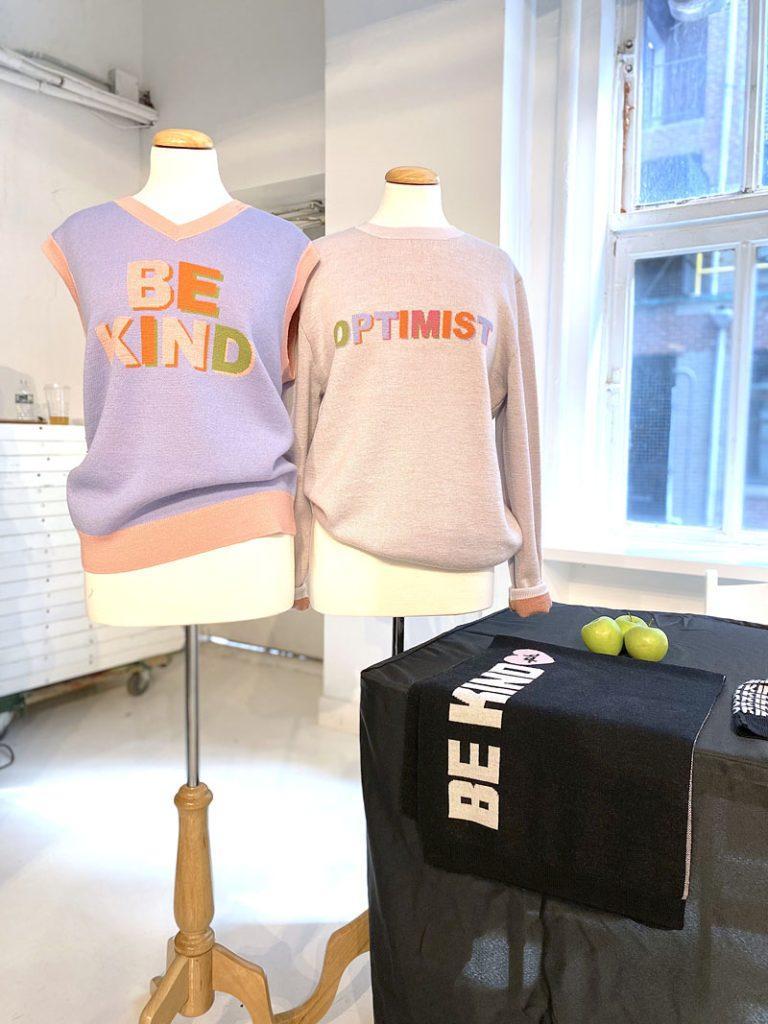
The Phluid Project
“There’s a new generation of savvy consumers who are done with showing logos and cheap fads. They’re interested in upcycling, searching for high-quality and exclusive merchandise,” Agins said. Two retailers that Henries feels offer this experience and product assortment are London-based Wolf & Badger, a global online marketplace for independent brands with storefronts in London, NYC, and Los Angeles, and Cult Mia, an online platform that specializes in curating pieces that can’t be found elsewhere.
Wolf & Badger’s mission is building a community of ethical brands and conscious consumers who positively impact the world. Cult Mia requires every brand they carry to align with one of their four key values – sustainability, protecting local heritage, minority empowerment, and social consciousness. A portion of every sale order is donated to a charity.
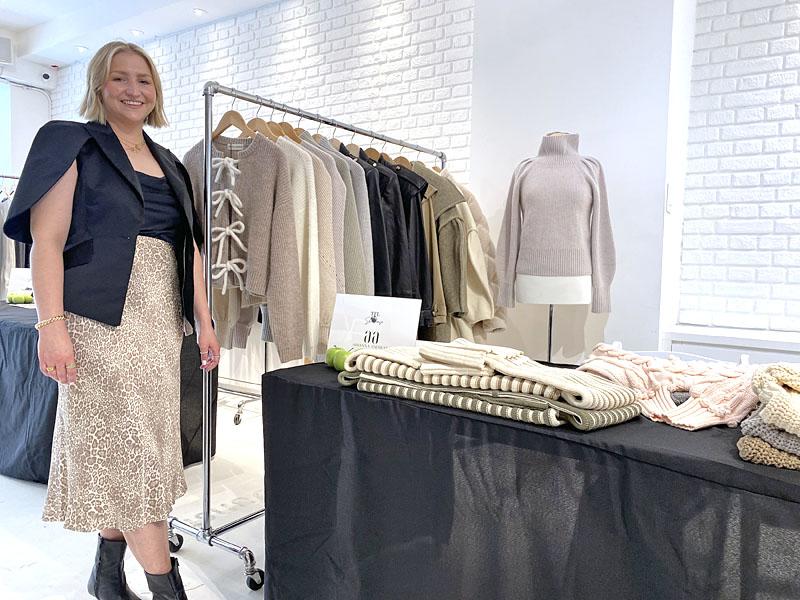
Paige Andreas (Arianna Andreas)
Breaking Away From Outdated Models
“The traditional brick-and-mortar department store just doesn’t work anymore in the world of e-commerce. There’s too much product for that model,” Henries said. She highlighted UK retailer Selfridges as an example of a company reinventing itself to stay competitive.
The store’s new initiative, Project Earth, offers consumers more sustainable ways to shop. “RESELFRIDGES” consists of the five Rs: Resale (pre-owned), Repair, Refill, Rent, and Recycle. Shopping for pre-owned merchandise at a discount and renting designer apparel is not exactly a new concept, but it’s a vital step in the right direction for a large retailer.
The store also introduced a concierge service where customers can bring their favorite handbags, apparel, shoes, and jewelry to be repaired, reducing waste and consumption.

Tamara Davydova (Minimalist)
“Sustainability can be a huge cost saver. When a company starts making sustainable choices, they start saving money,” Henries said. “They’re shipping less and using less material, so they will inevitably spend less.” She explained that investors are becoming increasingly interested in sustainability, and many are approaching these ventures from an artisan perspective, where the goal is to preserve the art form through business practice and education to ensure that future generations can continue the craft.
“That’s encouraging,” Agins agreed. “I think sustainability is creativity, innovation, and exclusivity. That’s what the consumers want – what the younger generation wants.” She added, “My generation grew up with high-end clothes still in the department stores. We knew quality, and we understood connoisseurship, and I think that’s something the younger generation is trying to get back to because they see it in the vintage clothes — they see the workmanship.”
TFL’s Kate Sheldon sees all this promise embodied in the showcase participants and their companies. “As consultants, designers, retailers, and media members, we have a responsibility to present better options to customers, and this is a room full of people trying to do that.” She said, “It will be hard, but incredible things are happening, and I’m excited for the future.”
Latest Comments:
Iris Apfel’s 100th birthday looked like the ultimate celebration—so iconic!
The MAD About Jewelry benefit looks like a stunning event—so much talent on display!
Love the deep dive into timeless fashion trends!

Our comments section is working again…

LOVE all of this. Thank you, Marilyn. <3

My fave is the Gorski. Best look and function to me!

A Marvelous Tribute to IRIS, a one-of-a-kind work of art!

You beautifully, tastefully, and rightfully said it all. I do think Melania’s Adviser Herve Pierre influences her choices.

Fascinating article–fascinating man! Thanks, Marilyn!

Love my portrait Thank you Michel Haddi!!!!
Such a fun and bold take on fashion! Love how this collection brings a fresh, playful energy to the scene.

Great and informative article. There is nothing that compares to a beautifully made garment that lasts forever.